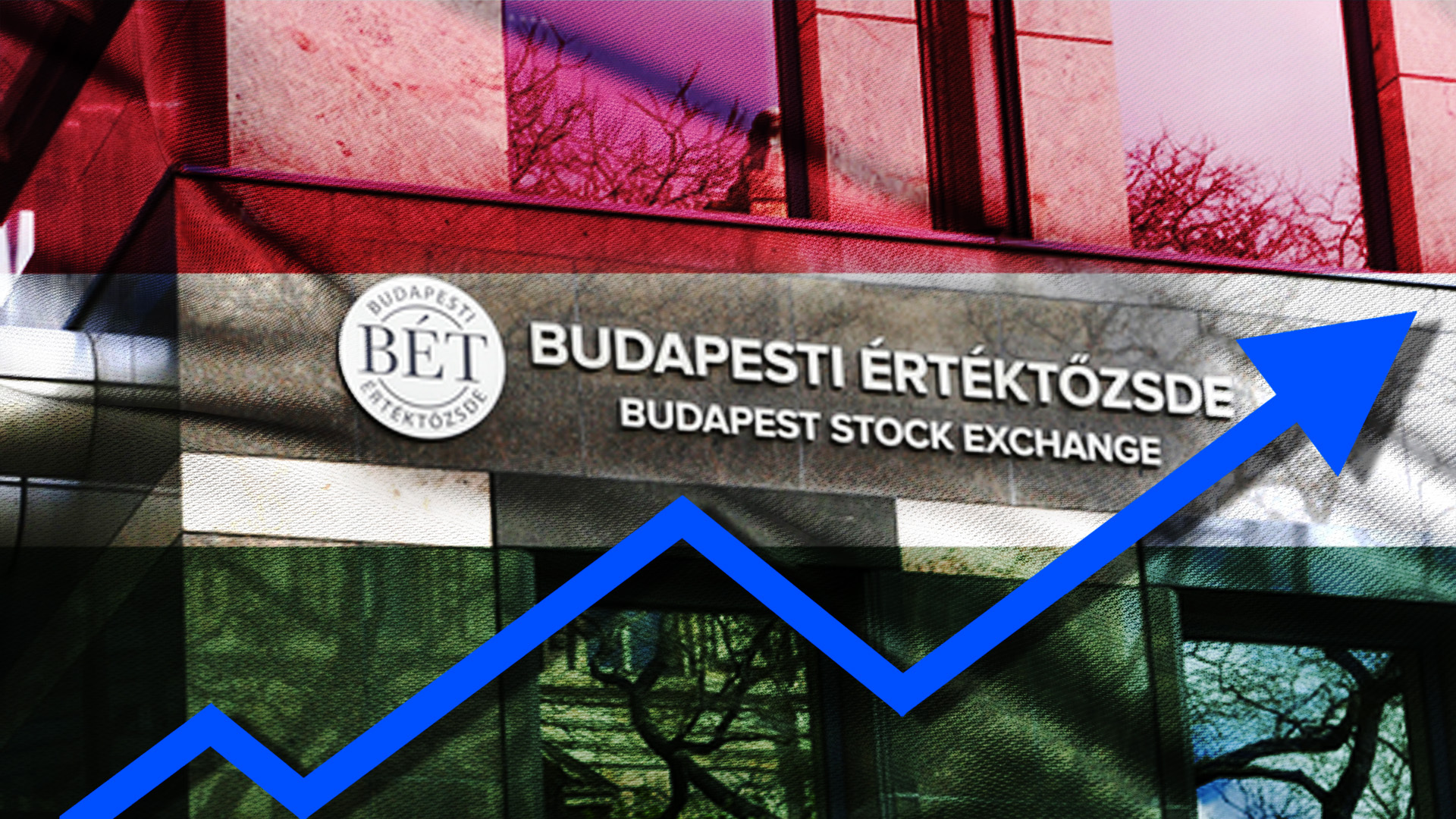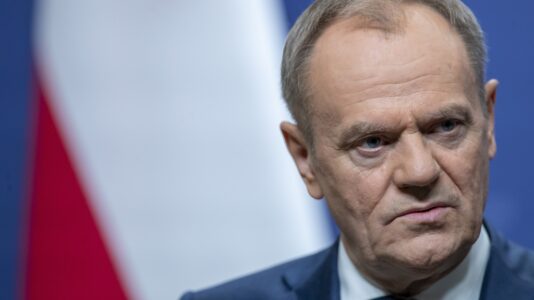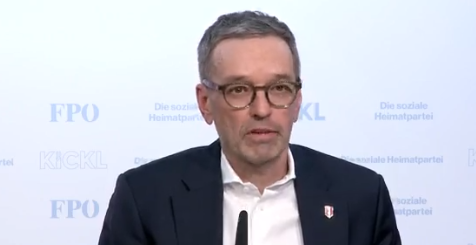Bálint Szécsényi, the chairman and CEO of Equilor Investment Co., Ltd. and the former vice chairman of the Budapest Stock Exchange, gave a lengthy interview to Mandiner on the BSE and the Hungarian economy overall.
On the one hand, one often hears the opinion that investors are fleeing from here due to the legal environment and the unpredictability of the investment market. On the other hand, not only are new large companies arriving to establish factories, but the BSE also reached historic highs in 2024. What is the assessment of the Hungarian economy now?
It is fundamentally favorable, much better than what can often be read in the news. We see that new and significant manufacturing capacities are arriving in the country, real wage growth is also dynamic, and there are also government incentive programs that support growth. I could also mention the significant amount of government bond interest that has appeared among the population in recent weeks and months, part of which will also have a positive effect on growth through consumption and household investment.
One indicator of the forecast of economic processes is the stock market. If we look at this, the record increase of the BUX last year and the capital market developments this year show that investors have favorable expectations regarding the growth prospects of the Hungarian economy. This is supported by the fact that at the end of 2024, we had the largest stock market listing of the last 25 years, with the listing of one of the most dynamically growing domestic companies, Gránit Bank.
In which Equilor also played a significant role.
Yes, Equilor was the leading distributor of the shares. The deal would not have been possible if the economic environment were not favorable and if investors did not have positive expectations regarding the banking sector and the economy. Although high inflation at the European level and thus the interest rate level are not favorable for the Hungarian economy, low unemployment, the expansion of domestic consumption and the start of production of new foreign investments will also improve our macroeconomic indicators.
How does the BSE compare to the rest of Europe?
The index’s performance in 2024 was well in line with international trends, and similar gains were seen at the regional level. The BSE’s turnover increased, making it the third most liquid market in the region after Warsaw and Vienna. There is still room for improvement, for example, the Polish market is three times larger and has eight times the turnover.
Budapest’s increase is likely due to the fact that the Budapest stock exchange is extremely undervalued compared to European markets on a price-to-earnings basis. There are of course various reasons for this, the state of the Russian-Ukrainian war being of paramount importance. If there are favorable developments in the latter, then we can rightly expect the BSE to catch up with the regional leaders.
Are legislative changes also necessary for better operation?
In order to increase the competitiveness of the Hungarian capital market, it would definitely be necessary to integrate European Union legislation into domestic regulatory and supervisory practice in a supportive manner.
It is important that the BSE be the leading player in the Hungarian capital market. It must represent and protect the interests of stock exchange trading companies, issuers and investors. It is also important that the BSE become the most popular trading platform among local investors so that issuers do not look for opportunities abroad.
I would like to highlight one of the possible legislative changes: Some of the securities listed on the BSE are not traded through the Budapest Stock Exchange, but abroad or outside the exchange. A regulation could be introduced here, similar to that in Poland, whereby if investors do not conclude these transactions on the domestic stock exchange, they would have to pay extra settlement costs.
Wouldn’t this additional burden ultimately be paid by investors, by those who buy shares?
No, since this circumvention is primarily used by foreign institutions. They conclude deals between themselves, reducing the liquidity of national stock exchanges. Retail investors are not affected by this. It would also be important for the BSE to be the primary platform for domestic companies to enter the market, and for these transactions to be carried out through it.
A stronger strategic alliance would also be needed between the state and the BSE, although progress has already been made in this regard. It would also be important for the BSE to be the primary platform for state-owned companies to raise capital in the future.
After last year’s record year, where could the BUX end this year, and could domestic index-tracking investment funds (ETFs) become even more popular?
ETFs are among the most popular investment instruments internationally, and they make it extremely easy to invest in multiple stocks at once. They have especially conquered larger markets where a lot of securities are traded.
In Hungary, four or five stocks determine the turnover of the BSE and the value of the index. It is not difficult to invest in these individually, so I think the BUX-ETF cannot gain that much popularity. But it is definitely an important and good tool if someone wants to passively invest in the companies that determine the Hungarian economy.
Returning to the index, we expect that favorable developments in terms of domestic economic policy and thus the economy as a whole are expected this year, and they can bring further stock market growth.
Could you give me a number?
Let’s just say that the BUX could reach new records. Many say 100,000 (currently at around 86,000), I don’t think that’s impossible either. But it depends on many factors.
In mid-January, you stated that the forint exchange rate against the euro could increase to around 420 by the end of the year, but in recent days the quotation has even fallen below 405. Do you still hold his forecast?
It is important to emphasize that short-term exchange rate movements do not provide an insight into the state of the economy, but rather the operation of the real economy, while monetary policy determines the long-term prospects of the exchange rate.
The forint exchange rate is a key element of the competitiveness of the Hungarian economy, which is why it is news when it moves in a certain direction, but it is often given too much focus.
Those who follow the foreign exchange markets can see that similar movements are often experienced in other currency pairs. Extreme exchange rate fluctuations are of course not good for anyone, and a stable, predictable environment is much more favorable. Despite this, Equilor analysts still consider the euro exchange rate of around 420 forints to be realistic by the end of the year, and we also expect that the exchange rate policy will be more stable with the new central bank leadership.
No significant easing of monetary policy is expected this year, and the central bank’s base rate is not expected to move much, according to forecasts. What do you think at Equilor?
We don’t expect anything like that either, we see two smaller cuts by the end of the year. Many circumstances can be attributed to the fact that we are stuck at such a high base rate, but as I mentioned earlier, in the event of the expected favorable changes – low inflation, good economic performance and predictable monetary policy – the interest rate level will also be significantly lower.
Speaking of interest rates: From January, households will be receiving a shower of money, HUF 1.7 trillion back from government securities this year. What is worth investing in now?
This is truly extraordinary, there has been no similar example in previous decades. When it comes to investments, we always draw attention to the fact that diversification is the most important thing, as this is the easiest way to reduce risk. Government securities continue to be a stable and safe investment.
It can be seen that there is a kind of illusion about interest income among the population. Due to the much higher previous levels, many are now looking for similar opportunities. However, it must be understood that the interest rate of around 20 percent was exceptional, now at the government securities market yield level of 6-7 percent, a real return of around 2 percent must be accepted, which is still higher than the pre-pandemic level.
It is also clear that government securities have sucked investments from the real estate market in recent years, so we expect that some of the interest payments will be concentrated there. But BSE shares are also attractive investments, they also have a place in a diversified portfolio.
Turning back to the listing of Gránit Bank, is a similar initial public offering (IPO) expected in the coming years?
Many were pessimistic about whether there was a demand for such a large IPO and whether it could even be successful. The market refuted these by saying that we were faced with the largest demand for retail shares in the last 10 years, and with the HUF 17.7 billion of capital raised, the largest capital raising in the last 25 years was achieved. Further large listings would be necessary for the BSE to level up. There are large, even state-owned companies that are of such a size that could attract market interest.
In my opinion, the situation is ripe for new large companies to come to the stock exchange.
There was another major market transaction last year in which Equilor also played an important role: the repurchase of Liszt Ferenc Airport. Why was this necessary?
International examples also show that an airport of this size is a strategic infrastructure element that is key to economic growth. It plays a prominent role not only in tourism, but also in the fields of logistics and trade.
The Hungarian state did not purchase the airport alone, but together with an international investor with extensive experience in this area. This professional cooperation enables a more predictable development strategy in the long term.
Equilor’s role was decisive in the transaction because, as a consultant working in the domestic market for 35 years, we understand Hungarian economic interests and priorities best. The agreement had to be concluded with more than 20 financing institutions, and we were able to help with this with our advice.
According to the news, regional freight traffic may slowly surpass Vienna. How much development potential does the airport still have?
There are still enormous opportunities in terms of both freight traffic and passenger transport. Of course, this requires significant infrastructure investments, which cannot be realized without the active contribution of the state. A new terminal or the establishment of a direct high-speed rail connection to the city center could put the airport in a different dimension.
How will the normalization of Hungarian-American relations affect the domestic economy?
There is great anticipation surrounding President Donald Trump’s measures, but changes will take place more slowly. American investment coming here is expected to increase, and hopefully, the double taxation agreement will be restored. Direct flights between the two countries would also be important, and Liszt Ferenc Airport could play an important role in this.






